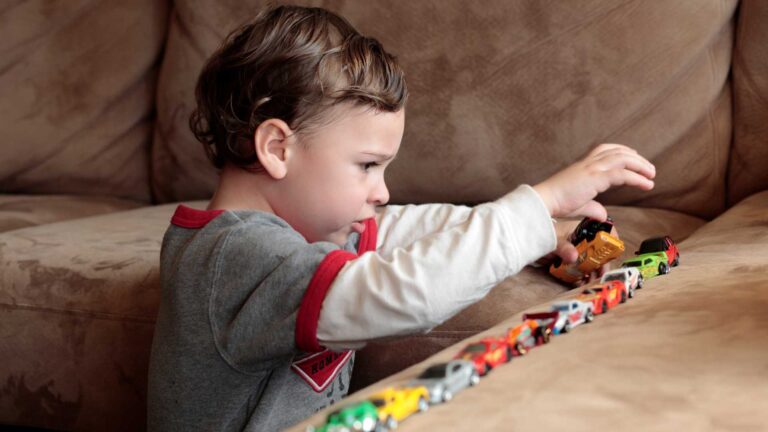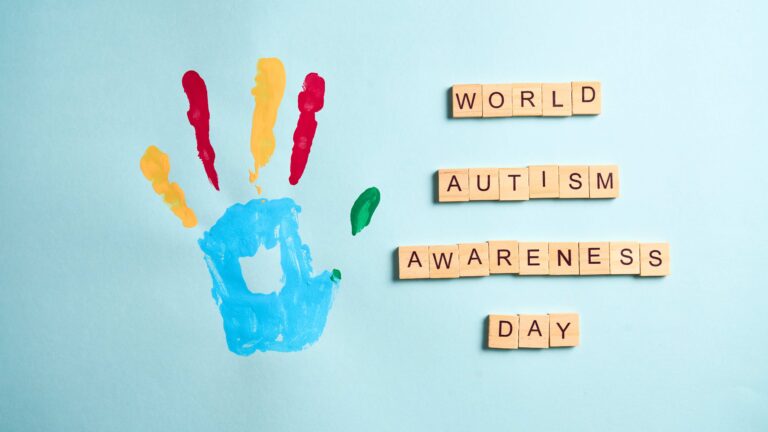Table of Contents
Play is an essential part of childhood, serving as a fundamental tool for exploring the world and supporting children’s cognitive, emotional, and social development. However, when addressing autism and play skills, we may encounter unique challenges. What happens when children with autism play “differently”? Why is play important in autism?
For children with autism, play does not always follow typical patterns. They may have unique interests, engage in repetitive play, or prefer solitary activities rather than interacting with other children. These traits do not mean they do not enjoy playing; instead, their way of playing may look this way.
In this ABA Centers of Rhode Island blog, we will explore the connection between play and autism, why play-based therapy for autism is effective, and how you can support your child in navigating autism and play skills.
Understanding The Particularities of Autism and Play Skills
Neurotypical children usually go through different stages of play, beginning with sensory and exploratory play, then progressing to symbolic play, and finally to cooperative play with other children. However, in children with autism, these stages may not develop linearly or may present differently.
Children with autism tend to focus more on repetitive play or unconventional manipulation of objects, which may make it difficult to transition to imaginative or social play. These traits do not mean that they cannot play but that they need specific strategies to develop their skills.
According to a study from the American Journal of Play, children with autism may struggle with social and imaginative play, which can lead to social isolation if they do not receive adequate support. Difficulties with joint attention, imitation, and social reciprocity affect their ability to interact with peers, often leading them to prefer more structured or solitary activities.
However, understanding the particularities of autism and play skills is essential to finding ways to adapt games to each child’s needs and preferences, fostering the development of their social, communicative, and emotional skills, as well as their cultural participation.
Play and Autism: How to Promote Play Skills?
Parents, caregivers, and educators should approach autism and play skills by accommodating the child’s preferences and needs. However, there are some strategies to promote the development of play skills.
- Use your child’s interests as a starting point: If your child has a special fascination with trains, blocks, or dinosaurs, use that to your advantage. For example, instead of simply lining up the blocks, suggest that you build a tower together, taking turns placing the pieces. This strategy will encourage cooperation, patience, and social interaction.
- Adapt the games they already enjoy: See what kinds of activities generate the most interest and adjust the game to introduce new concepts. If your child likes to line up cars, you can create a game in which the cars have to reach a goal, encouraging following instructions and creativity.
- Play along with your kid and model behavior: Children with autism learn a lot through imitation. If your child is building a tower of blocks, make one, too, and then suggest putting them together to create a larger structure. By actively participating, you will teach them new ways to play and expand their repertoire of interactions.
- Create structured play routines: Children on the autism spectrum are often more comfortable when they know what to expect. Establishing a specific time to play each day and maintaining a clear structure can help them feel more confident and willing to participate.
- Reinforce every small accomplishment: Positive reinforcement is essential to motivate collaborative play. Celebrate every step, no matter how small, whether it’s with praise, a smile, applause, or even a small reward. This strategy for autism and play skills will give your kid the confidence to continue exploring new forms of play.
- Take advantage of sensory play: Activities such as playing with play dough, sand, water, or paint can be highly engaging and beneficial for children with autism. Not only are they fun, but they also help regulate their sensory system, facilitating relaxation and concentration. Before implementing this strategy, make sure your child tolerates these textures.
How Does Play-Based Therapy for Autism Help?
Play-based therapy for autism is an approach that uses structured play to teach social, communication, and cognitive skills. A study by Autism & Developmental Language Impairments showed that children with autism who participated in play-based interventions showed significant improvements in social interaction, communication, and imagination skills.

ABA (Applied Behavior Analysis) therapy incorporates play strategies to teach skills in a structured, motivating, and child-specific manner. ABA therapists help the child learn communication skills, emotion management, and turn-taking through games that consider their preferences.
ABA Therapy and Play: Empowering Benefits
When discussing autism and play skills, it is essential to highlight the role of ABA therapy.
Play-based therapy for children with autism that implements ABA principles can help children with ASD to:
- Strengthen communication skills: With symbolic play in ABA therapy, children practice social interaction skills and language with the help of dolls or animals. Symbolic play in ABA therapy addresses the challenges of autism and play skills in a natural and fun way.
- Improves social skills: ABA therapy and play benefit from technology. For example, in an ABA session, the therapist can use games in virtual or motion-sensing worlds that promote cooperation, turn-taking, social participation, and social behavior.
- Promotes motor and cognitive skills: Frontiers in Psychology research on game-based therapies for children with autism involving digital and analog games found that these interventions provide aid in improving social, cognitive, motor, academic, and behavioral development.
- Promotes emotional regulation: ABA therapy and play involve safe scenarios in which children can learn to respond to different feelings and develop healthy emotional management.
- Strengthens meaningful bonding: When parents and loved ones of individuals with autism engage in ABA sessions, they can learn techniques to enhance their bonding, communication, and emotional connection with their loved ones on the spectrum through play.
- Offers structured learning: Autism and play skills benefit from routines and structure. Determining a time of day to play, whether it is a digital or board game, can help children foster skills consistently and predictably.
Play-based therapy for autism with ABA focuses on fun, mitigating any pressures that hinder learning. ABA therapy and play provide a positive environment that allows the child to practice skills without it feeling like an effort. Parents can participate in the sessions and learn to implement the strategies with games at home.
ABA Centers of Rhode Island: No. 1 Provider of Play-Based Therapy for Autism
Play is a powerful tool for child development, and while children with autism may experience challenges in this area, with the right strategies, they can learn to enjoy and benefit from it.
When we talk about autism and play skills, ABA therapy offers a practical approach to enhance these skills, allowing children with autism to develop social interaction, communication, creativity, motor skills, and more in a meaningful way. If you’re looking for support, we at ABA Centers of Rhode Island are here to help. Call us at (855) 922-4184 or contact us online. At ABA Centers of Rhode Island, we tailor play-based therapy for children with autism to their interests and abilities.









